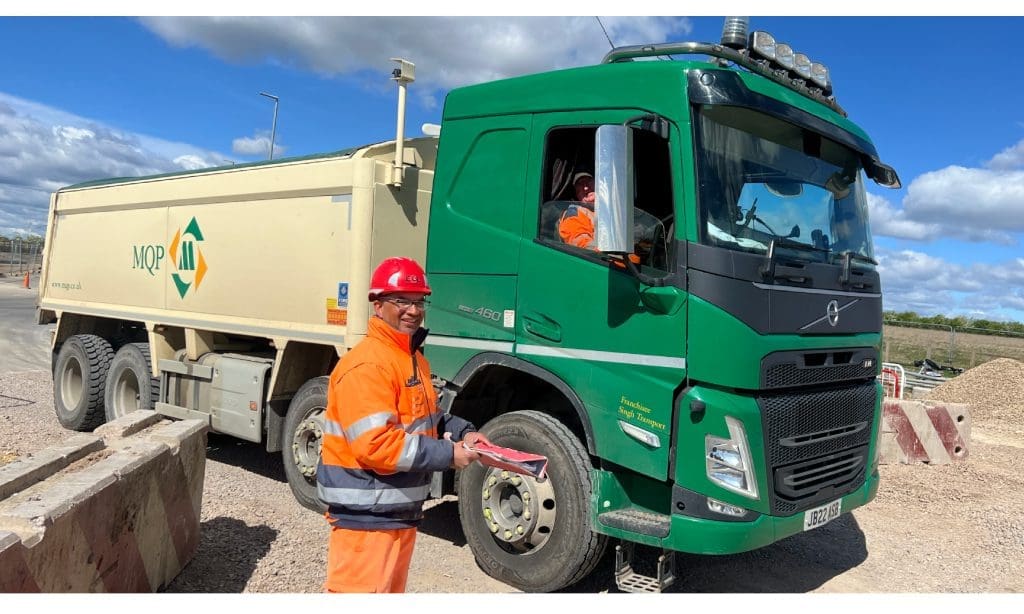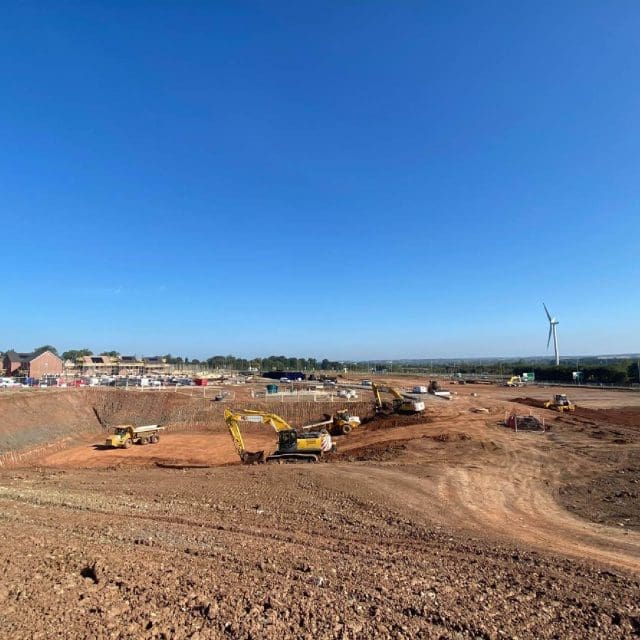CARBON REPORT REVEALS SAVINGS
Our Carbon Data Analyst, Cristian Bain, has refined our carbon data collection process, providing detailed insights into our carbon emissions. We now understand our carbon footprint on a project and overall level, and are pleased to share key findings from our 2023 corporate carbon footprint report.

MATERIAL RECYCLING
98% DROP IN WASTE EMISSIONS
ECL’s remarkable strides in reducing waste emissions have significantly impacted the business’s carbon footprint. Since 2021, our robust recycling strategy for on-site waste materials has led to an impressive 98% drop. In our latest carbon reduction report for 2022-2023, we proudly achieved a substantial reduction of 8,345 tonnes of CO2 waste emissions. A staggering 99% of the materials were either sent to recycling plants or repurposed on-site, with a mere 1% ending up in landfills.
Cristian Bain, our Carbon Data Analyst, emphasised, “This significant decrease in waste was no stroke of luck, but the result of meticulous planning and responsible practices. We strategically repurposed materials on our site, opting for crushed concrete, tarmac, and hardcore instead of new materials, and managed our topsoil more effectively.”
These proactive measures have not only led to waste reduction but have also substantially reduced our carbon footprint.
Just to get a perspective on the savings made, 8,345 tonnes of CO2 emissions is equivalent to the carbon dioxide emissions produced by approximately 1,800 cars driven in a year or the annual amount of CO2 absorbed by a forest of around 136,000 trees.

INBOUND LOGISTICS
25% CO2 SAVINGS ACHIEVED
We are proud to announce a 25% reduction in carbon emissions related to Inbound Logistics. The team has been working hard to improve our sustainability efforts in this area and optimise the ordering and delivery process for materials arriving on site.
In the last few years, we have adopted a two-pronged approach to achieve this. First, we have increased our bulk purchasing to minimise the number of individual deliveries.
Secondly, we have enhanced our ordering process through local procurement where possible, resulting in reduced delivery emissions and positively impacting the local community.
This initiative supports local businesses, cultivates a sense of community, and contributes to local economic growth, an outcome we can all take pride in. After two-plus years of implementation, we are pleased to see our combined efforts have led to a substantial reduction in our inbound logistic emissions, resulting in a saving of 1,917 tonnes of CO2 emissions.
This achievement cannot be overstated. The 1,917 tonnes of CO2 emissions we have saved is enough to power 400 homes in the UK for an entire year. This reduction not only aligns perfectly with our sustainability goals but also highlights our unwavering dedication to optimising our inbound logistics process for greater efficiency and cost-effectiveness.
SCOPE 2 EMISSIONS
TARGET HIT! RENEWABLE ENERGY
Our switch to 100% renewable energy has led us to achieve zero scope two emissions for our HQ building and Yard. The results speak for themselves.
RAW MATERIALS
CHANGE IN PROFILE OF MATERIALS
The shift from clay and concrete to polymer pipework has resulted in a significant increase in emissions, rising from an average of 0.5 kg CO2e/KG material to 0.1 CO2e/KG material, doubling pipework material emissions.
Furthermore, the growing demand for enhanced building insulation has led to a surge in our waste material footprint. While we must absorb the CO2 impact during installation, it’s crucial to note that the resulting energy performance and maintenance are expected to pave the way for significant long-term CO2 reductions.


